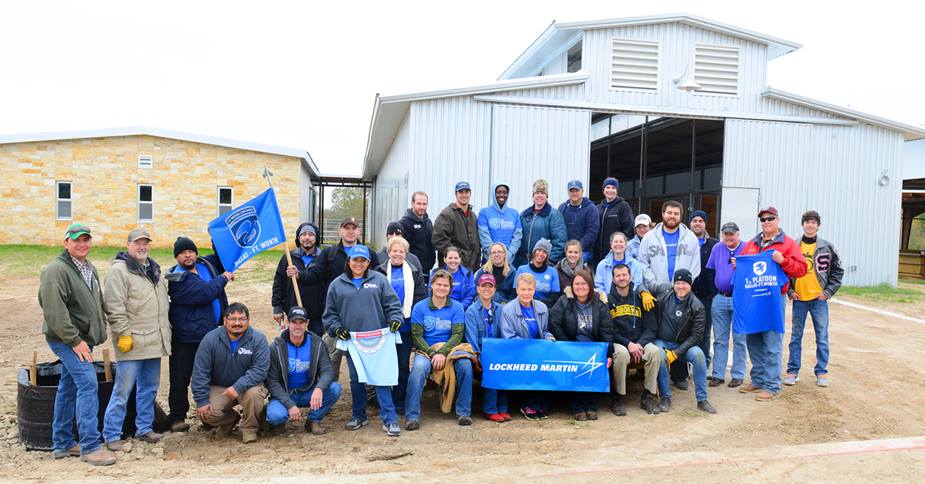No one deserves to endure what I did as a transgender soldier
Dec 24, 2018

By Joey Whimple, volunteer
I loved being a soldier and I am proud to be a transgender person. No one deserves to endure what I did.
I had the desire to join the Army as a result of two driving forces. The first, my grandfather was a disabled World War II Veteran who fell madly in love with my grandmother, an Army nurse who treated his wounds. As you can tell by that quick anecdote, military service was deeply rooted into my family’s framework.
The second motive to enlist was that I desperately needed to feel a connection to something. I needed some sense of belonging. I needed a community. My childhood was fairly grim and clouded. Being transgender but not being able to identify my feelings to an actual concept caused me to have crippling social anxiety and overwhelming sorrow.

I isolated myself, and fell into a deep, daunting, depression. It was as if I was drowning.
I needed to belong to a group and contribute to a cause larger than myself. I had no time to waste–I left home for the United States Army at the age of 17, a few days after my high school graduation.
I embraced serving and I absolutely loved it.
I craved the discipline and waking up every morning to leave my comfort zone. Throughout the duration of my initial military training, I was too preoccupied with waking up every day at 4 am and going to bed at 11 pm after intense physical exercise to focus on my confusion with my body or gender. When I graduated training, time slowed down a bit and the dark thoughts returned with a vengeance.
My first duty station was Ft. Benning Georgia, just down the road from Atlanta where a momentous amount of LGBT individuals would connect on the weekends. Throughout several interactions with other transgender individuals, I was finally able to apply some sort of tangible term or phrase to how I was feeling.

Tagging lifelong pain and confusion to an actual term was beautiful and refreshing, but there was still a barricade.
I was unable to medically transition because identifying as transgender was seen as a mental disorder by the military. Transitioning or identifying myself as a transgender military service member could mean losing my job and even receiving a less-than-honorable discharge.
This felt like a punch in the gut. After 20 years, I finally had the key to feel comfortable in my own skin and overthrow my misery–and now I was forced to keep my mouth shut once again.
The fear of anyone finding out about the fact that I identified as transgender was crippling, but living as a female was equally as crippling. I had to live day in and day out as a female, loathing my body and the way that I presented myself in society.
I isolated myself from my peers, battle buddies, leaders, and comrades, and felt as if I lost a significant amount of my military experience. I did not feel safe anywhere and it put me in a constant head spin.

The weekends gave me the opportunity to present myself as a young man in society were the only time that I felt alive, and it was such a release. I went to clubs, bars, and social events for LGBT people far away from Ft. Benning where I experimented with different male names.
I ultimately made the choice to exit the military in order to physically transition. This choice both saved my life and killed me at the same time. I was finally able to express my true self, but my dream was to lace up my boots every single morning and serve in the Army.
If I was able to transition while in the service I would have spent so much more time making incredible memories with my battle buddies. I would not have been an outcast. My dream my entire life was to be in the military, and I feel as if I lost out on a significant amount of the true military bonding experience because I was miserable being trapped in my own skin.

Currently, there is a momentous amount of conversation and commotion about transgender people openly serving in the military, on top of the transgender rights movement overall.
Throughout my time as a soldier, I oversaw training, development, and operations for a unit of combat medics. I flourished in my role, was respected by my seniors, and was complimented for my strengths. I am proud of everything I accomplished and all the work I put into the mission of my unit. The fact that I served as a transgender soldier did not compromise my work ethic.
This is why I say no one deserves to endure what I did. No one should feel unsafe to come out in their workplace nor be forced to hide their true selves. Military individuals should be judged on what sacrifices they make for their unit, for their battle buddies, and for the flag that they wear on their uniform, not for expressing their true selves.





